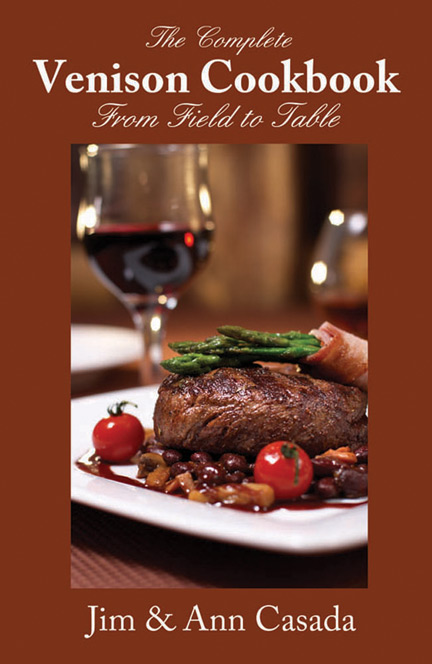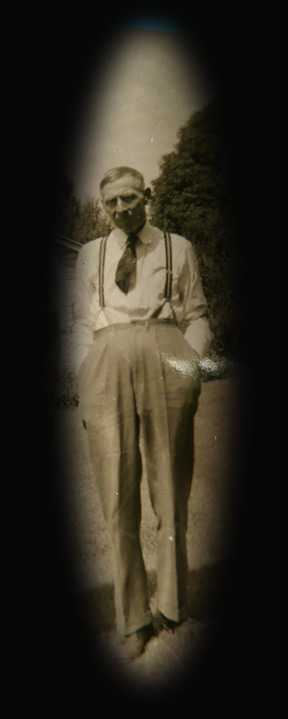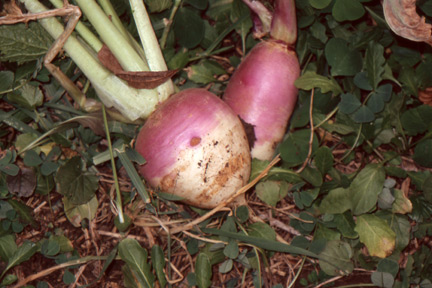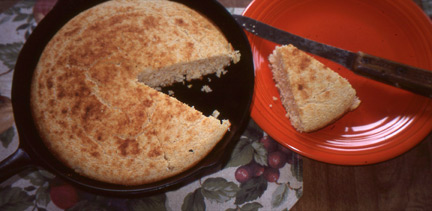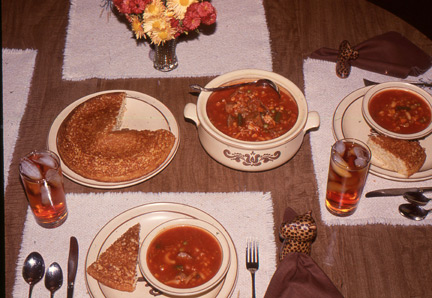February 2015 Newsletter
Click here to view this newsletter in a .pdf with a white background for easy printing.
His death came in late February, which seems to me somehow appropriate, because in our countless sessions of rocking chair relaxation in the heart of winter, as he eased close to the fire and muttered about what he simply styled “the miseries,” Grandpa often philosophized about the month. “It’s fittin’ February is so short,” he would say, “because 28 days of it is about as much as a body can stand.” He would then opine that the best of winter’s hunting was over, “and besides, these gloomy days of rain and snow are a time for a spry young colt like you, not an old man, to be out and about.” I was often tempted to remind him that he had been “out and about” on just such a day when he slipped in snow while squirrel hunting and shattered his hip, but I knew better. I would have gotten a gentle but biting dose of verbal tea concluding with something to the effect that while I didn’t know what I was talking about, “you’ll learn.” I reckon I’m still in the process of learning all those life’s lessons which Grandpa figured ought to be a part of a mountain youngster’s upbringing. Who knows, maybe I’ve now advanced to a point a bit beyond the kindergarten stage. For all that he groused about weather, mistrusted mankind, and clung to his independence with a ferocious tenacity, it wasn’t in Grandpa’s character to stay pessimistic for long. He’d shake off bouts of arthritis, “rheumatiz,” or associated other miseries linked to old age. Possibly he would mention whatever ailment plagued him at the moment but then hasten to add: “I reckon an old man’s got a right to ache a bit, but it don’t do to dwell on it.” Thereby dismissing the subject, he would take a sip of “Rooshian” (Russian) tea so hot it would burn the lips of most mortals and then turn to sharing his particular brand of homespun wisdom. His thinking ranged widely and might involve anything from reliving his boyhood to practical matters such as how he planned to lay out the garden come spring or what the signs foretold regarding weather in the coming weeks. Grandpa was a mighty believer in signs, from planting by them to reading what the skies, smoke, animal behavior, and a host of other things portended. More than anything else, never mind than he had known poverty all his years and should have had reasons aplenty to be pessimistic or reel downtrodden, Grandpa was a dreamer. In some senses he spent his whole life dreaming, although his visions and wanderings in the realm of wishful thinking lay outside normal approaches. If financial affairs meant much to him I never saw any real indication of it, although whenever the subject came up he always referred to “cash money.” He had so little of it the redundancy was richly deserved. Grandpa could outwork men half his age and never shied from doing so, although he was constitutionally incapable of following orders if they involved so much as a hint of supervision or oversight. You could tell him a field needed hoeing, a lawn needed mowing, or an orchard needed pruning; just hire him to have at it and all would be fine. Look over his shoulder though or make suggestions on how to perform the job though, and it was time to seek someone else to handle the chores at hand. He was so completely his own man no one, with the possible exception of Grandma Minnie, could tell him anything. Grandpa’s dreams focused not on money but on matters such as the American chestnut’s return, the significance of planting black walnuts (he called them “grandchildren’s trees,” knowing it would take that long for the slow-growing species to reach maturity), olden times when he often heard the scream of a “painter” and even killed one as a young man, hunting pheasants (his word for grouse) when they existed in large numbers, and indeed sport of any kind. He lived a life cast in the past and looking to the future rather than being much occupied with the present. His reminiscences also ventured into romantic realms on the fishing side of the sporting equation, with my favorite tale being when he told of speckled trout so plentiful you could easily catch a hundred in an afternoon of fishing. Similarly, every time he recounted an epic battle with a giant jackfish (muskellunge) I listened in enchantment. Despite hearing that tale times without number it never grew old. That’s a hallmark of a masterful weaver of words. Sooner or later, and especially during the depths of winter when outside activities were limited by inclement weather, he would turn to a subject which provided me endless delight. Grandpa would abruptly switch from musing about matters dating back to the late nineteenth century and focus on the future. “I’ve always liked figurin’,” he’d opine, “and it’s high time the two of us got busy on that front.” Or maybe he would suggest we needed to do some “dreamin’ and schemin’.” Whatever his choice of words, the point of it all was quite clear. He had decided to quit reflecting on the past and would start musing on the near future. He reckoned a good dose of planning about events to come offered an ideal antidote for anything from cabin fever to Grandma being vexed with the two of us. Grandpa would launch into a detailed plan of what we needed to do to get ready for spring fishing, or maybe decide it wasn’t too late to make one more rabbit gum and set it in a likely spot. We might peruse that year’s Sears & Roebuck catalog to compare mail order prices of essential items such as snelled fish hooks or the new-fangled monofilament line with what they cost locally at Cope’s Hardware. Often Grandpa talked of trying a new fishing spot on the river or a journey up nearby Deep Creek, and if it was wintertime we would get several cane poles rigged and ready for our fishing forays come greening-up time. Year after wonderful year Grandpa showed me that dreaming is by no means the exclusive preserve of the young. You just had to be young at heart. That was one of his most enduring and endearing qualities. Grandpa Joe never saw the ocean, but he fished in pristine mountain streams and drank sweet spring water so icy it set your teeth on edge. He never drove a car but he handled teams of horses and understood the meaningful application of the words gee, haw, and whoa. I’m pretty sure he never left the state of North Carolina, but he lived a full life in the Smokies, mountains so lovely they make the soul soar. To my knowledge he never once ate in a restaurant, but he dined on sumptuous fare—pot likker, backbones and ribs, fried squirrel with sweet potatoes, country hams he cured from hogs he had raised and butchered, cathead biscuits with sausage gravy, cracklin’ cornbread, and other fixin’s the likes of which no high profile chef ever prepared. He never drank a soda pop, but he "sassered," sipped, and savored pepper tea he prepared from parched red pepper pods like a connoisseur of the finest wines. He never tasted seafood, but he dined on speckled trout battered with stone-ground corn meal. He never ate papayas or pomegranates, but he grew cannonball watermelons so sweet they’d leave you sticky all over and raised muskmelons so juicy you drooled despite yourself when one was sliced. He never had crepes Suzette, but he enjoyed buckwheat pancakes made with flour milled from grain he had grown, adorned with butter his wife churned, and covered with molasses made from cane he raised. He never ate eggs Benedict, but he dined daily on eggs from free-range chickens with yolks yellow as the summer sun. He was marginally literate, but he read the Bible faithfully every day. He seldom went to church, at least in the years I knew him, but he was an intensely religious man. In short, Grandpa Joe was not, in the grander scheme of things, an individual who garnered fame or fortune, accolades or grand achievements. His life was one of limitations in many ways—geographically, technologically, economically, in breadth of vision, and at least in the eyes of some, accomplishments. To my way of thinking though, he epitomized love; the magic of mentoring; liberal dispensation of that most precious of gifts, time; and sharing of down-to-earth wisdom redolent of the wisdom inherent in singer/songwriter John Prine’s suggestion that “it don’t make much sense that common sense don’t make no sense no more.” He was, in my small world, the most unforgettable character I’ve ever known or will likely ever know. I don’t quite think, to echo a refrain from a poignant Randy Travis song about his grandfather, Grandpa Joe walked on water. Yet seldom has there been a day since his death, now encompassing the passage of almost half a century, I haven’t thought about him. Invariably those thoughts bring a wry smile to my face even as they produce a hitch in my throat. He blessed me with treasure beyond all measure, not the least of which was providing me an endless fund of anecdotes and tidbits of information to use in my writing. For that I owe him a debt of gratitude which can never be paid. FEBRUARY RECIPES Although he was lean and withy as a seasoned hickory sapling, Grandpa Joe was a trencherman of the first rank. He greatly enjoyed his food and was blessed in the fact that Grandma Minnie was a splendid cook. There are many things I fondly remember about mealtimes with them—Grandpa “sassering” coffee or tea so hot it would have scalded the lips and tongues of most folks, his drinking pepper tea made from parched red peppers he had grown, his love of anything cooked with streaked meat, and a sweet tooth which left him feeling no meal was complete without a hearty helping of dessert. Incidentally, he felt the same way about bread. You simply didn’t sit down at the table without having cathead biscuits, biscuit bread, or cornbread available. I also think the simple but heartfelt way he ended every blessing prior to eating is worth repeating. Grandpa would offer words of thanks and conclude bay saying: “You’uns see what’s before you—eat hearty.” He did eat hearty, and the recipes below come straight from the type foodstuffs he enjoyed. POT LIKKER In mountain parlance pot likker is not the savory juice left in the bottom of a bowl of turnip greens, boiled cabbage, turnips, or something similar. It’s a dish in and of its own and often, in combination with cornbread, was a meal. It was occasionally made with greens or turnips, but as a rule pot likker featured cabbage. Here’s the way Grandma Minnie made it.
2 cups cornmeal (white or yellow corn, although I think the best meal
comes from a white field corn such as Hickory Cane) Prepare skillet in advance (using the streaked meat you cook to get grease). Mix the buttermilk, salt, baking soda and egg with cornmeal and stir thoroughly. Pour streaked meat grease into the batter and stir in well. Pour batter into pre-heated skillet and bake at 425 degrees for a half hour or until the top crust is golden brown. The bottom crust should be dark brown and the whole pone perfect for crumbling up in a bowl of pot likker. You can sop with cornbread if you wish, but for the ideal marriage of pot likker and cornpone, a big soup bowl is the way to go. Pork was the staple meat of my boyhood, and that was true not just in my family but for folks of the Smokies in general. While a pig offered plenty of variety in terms of “meat on the table,” with dishes including liver mush, backbones and ribs, pork chops, fried tenderloin, cured ham, sausage, and more, the part of the critter which saw the widest use was unquestionably what we knew as streaked meat (also known as salt port, fat back, side meat, streak o’ lean, and by other names). Few indeed were the vegetable dishes lacking some streaked meat as a part of the cooking process. Here are two examples of ways in which it was used. STREAKED MEAT MILK GRAVY Fry several pieces of streaked meat until they are crisp and brown. Remove the meat from the frying pan and set aside. With the grease still hot add flour and stir steadily, reducing heat if necessary to be sure the flour does not scorch, until brown. Once your flour is brown (the Cajuns call this a roux but I have never heard the term used in connection with making mountain gravy), add milk and stir until the desired thickness is reached, keeping mind that the gravy will continue to thicken after you remove it from the pan. You can, if desired, crumble the fried streaked meat and add it to the gravy just before removing it from the pan. Serve piping hot with cornbread or biscuits. STREAKED MEAT DUTCH OVEN POTATOES Thoroughly scrub five or six good-sized baking potatoes and then quarter them. Place in a Dutch oven and sprinkle black pepper to taste over them. Cover with strips of fatback and cook at 400 degrees for about an hour. Check while cooking to be sure they aren’t overheating, and use a fork to make sure the potatoes are done. You may need to add salt but do not do this until after the potatoes are cooked. The streaked meat will usually contain enough salt to season them. SOUPER STEW Since February is an ideal time for soups and stews, and given that a venison cookbook is this month’s special, it seems appropriate to offer a simple but supremely satisfying recipe that fits the bill to a “T.”
2 pounds of venison, cut into chunks Place venison chunks in a Dutch oven. Mix all soups and water and pour over venison. Bring to a boil, reduce heat and simmer until tender (about 1 ½ to 2 hours). If too thick, add a bit more water as needed. Serve over rice or pasta or with a pone of cornbread.
Thank you for subscribing to the
Jim Casada Outdoors
newsletter. |
||||||||||||
|
Send mail to
webmaster@jimcasadaoutdoors.com with
questions or comments about this Web site. |
||||||||||||

